Marriage and Religious Freedom Bill to Fight 'Climate of Intolerance, Intimidation'
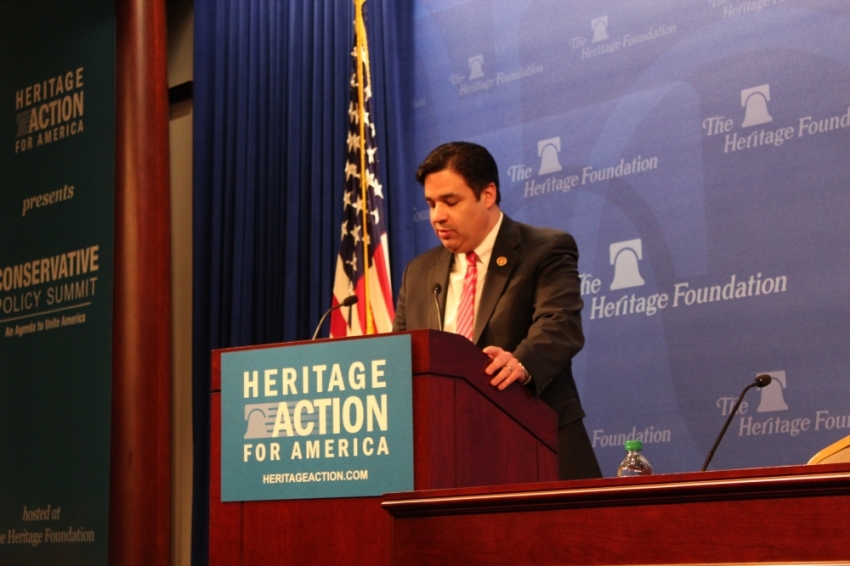
WASHINGTON – Congressman Raul Labrador (R-Idaho) presented his new bill to defend the religious freedom of those who believe in marriage, and experts discussed the threats religious liberty faces in the public square.
The Health and Human Services contraception mandate and cases where homosexuals sue religious florists and bakers for refusing to do business with them "are creating a climate of intolerance and intimidation for citizens who believe that marriage is the union of one man and one woman," Labrador declared at The Heritage Foundation on Monday. He discussed his bill, H.R. 3133, The Marriage and Religious Freedom Act, "to prevent adverse treatment of any person on the basis of views held with respect to marriage."
"We have a fundamental misunderstanding of religious freedom going on," said Sarah Torre, policy analyst at The Heritage Foundation's DeVos Center for Religion and Civil Society. Torre argued that the Obama administration is "watering down religious freedom to just freedom of worship" by insisting that faith "is not something that you bring into your workplace." Instead, the current policies presume that "faith is something that you keep in your home and place of worship."
Austin Nimocks, senior counsel with Alliance Defending Freedom, agreed. He explained that many recent legal cases "portray same-sex couples as victims and that just hasn't been the case in the way all these things have happened." In cases where homosexuals sue companies for discrimination, they get the service originally denied them, and they force believers to undertake difficult legal battles.
The Marriage and Religious Freedom Act
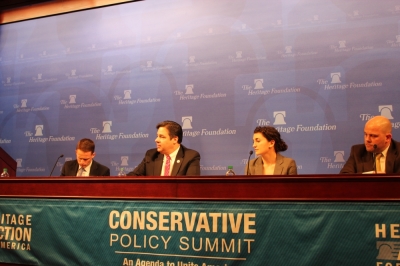
Labrador explained his bill, H.R. 3133, in terms of current events. He referred to the HHS mandate as an example of "the administration forcing religious and other faith-based organizations to spend money on things like abortion pills that violate their most basic beliefs." Labrador argued that, in light of the Internal Revenue Service targeting Tea Party and other conservative groups, the federal government needs to be restrained from discriminating against those who uphold traditional marriage.
"We should not assume that the IRS will be any friendlier to organizations that support and want to continue practicing traditional marriage," the congressman warned. "My bill is narrowly tailored to prohibit the federal government from inappropriately targeting organizations or individuals who hold a religious belief that marriage is a union of one man and one woman."
The bill prohibits the federal government from "making tax exempt status contingent on the group's beliefs about marriage." Labrador articulated the basic premise of the bill, saying "all Americans should be free to believe and act in the public square based on their belief about marriage without fear of any government penalty."
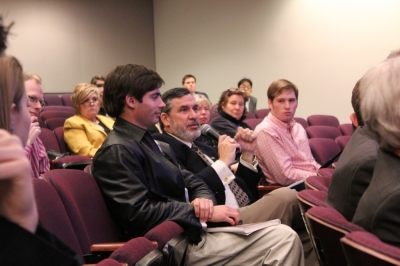
Can It Pass?
Labrador insisted that the bill "doesn't take away anything from anyone," but instead protects the religious freedom of those who uphold traditional marriage. "This is something both social conservatives and libertarians can rally around, and it can generate support in both parties and actually pass both houses of Congress and become law," he said.
The bill already has 100 cosponsors, with five of the six House Ways and Means Subcommittee chairmen declaring their support, Labrador reported. "We actually have a couple of Democrats who are already cosponsors of the legislation," he added.
The Persecution Problem
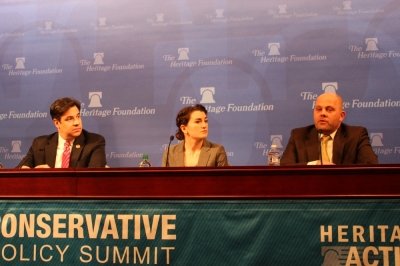
Nimocks laid out the "massive distinction between acting because of a deeply-held belief about marriage and acting because you don't like somebody who defines themselves as gay or lesbian." Many of the defendants ADF supports have no problem with homosexuals, but choose not to involve themselves in marriage ceremonies because of their religious convictions.
The lawyer brought up "the florist in the state of Washington who was asked to provide flowers for two men" as an example. Nimocks explained that they were friends and would frequently hug each other. "But when it came to 'we want you to participate in and celebrate our ceremony,' that's where she respectfully drew the line."
Although they hugged before the man requesting flowers left, the florist ended up served with a lawsuit.
"In each instance the same-sex couple or gay/lesbian at issue got what they wanted," Nimocks explained. Occasionally, they received the desired service at a discount, or even for free, as in the case of t-shirts for a gay pride parade. After receiving what they originally wanted, "they then turn around and go after people with religious beliefs."
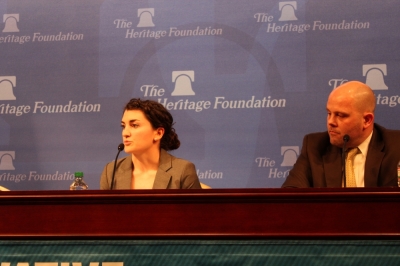
Energizing the Young
Torre proposed a strategy to alert Millennials to the religious freedom issue. "I think you tell them stories," she explained, about "these salt of the earth people who are doing the good work of restoring lives, of educating the next generation, providing health care for Americans." These public servants "are not able to do that under this rule, in accordance with the beliefs that motivated them to do that in the first place."
"You want to talk about social justice, you want to talk about empowering the poor, about taking care of those in need, you have to let people do that in accordance with their values and not penalize them through a government penalty," Torre declared.



























